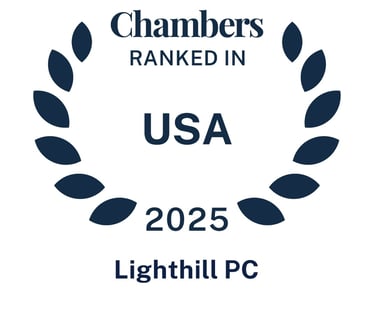Imports of Melamine from Germany, India, Japan, the Netherlands, Qatar, and Trinidad and Tobago
Petitions for Antidumping & Countervailing Duties


On February 14, 2024, Cornerstone Chemical Company (“Cornerstone”) filed international trade petitions against imports of melamine from Germany, India, Japan, the Netherlands, Qatar, and Trinidad and Tobago. Melamine is used in making durable tableware, countertop laminates, and a variety of industrial products, including automotive components and fire-resistant materials. The total value of the subject imports in 2023 was about $51 million. The petitions threaten the imposition of antidumping (“AD”) and countervailing duties (“CVD”) on imports of melamine, alleging the following duty rates:
Antidumping Duties
Germany: 5-140 percent
India: 378-619 percent
Japan: 104-124 percent
Netherlands: 33-75 percent
Qatar: 191-622 percent
Trinidad and Tobago: 230-458 percent
Countervailing Duties based on
Germany: twelve subsidy programs
India: twenty subsidy programs
Qatar: seven subsidy programs
Trinidad and Tobago: two subsidy programs
For foreign producers, exporters, and U.S. importers participating in these investigations, the duty rates often end up much lower than the alleged rates, sometimes resulting in no duties imposed at all.
Other Relevant Trade Actions
There are currently antidumping and countervailing duty orders on imports of melamine from China, which are also subject to Section 301 duties.
The Focus of the Investigations
The petitions were filed with the two U.S. agencies involved in antidumping and countervailing duty investigations: the U.S. International Trade Commission (ITC) and the U.S. Department of Commerce (DOC).
1. The DOC will calculate the dumping margins and countervailable subsidy rates for foreign exporters of melamine from these countries.
2. The ITC will assess whether imports from these countries are causing material injury to the U.S. melamine industry.
Dumping refers to the act of a foreign company selling a product in the U.S. at a price below its normal value. This value is determined by the foreign company’s above-cost sales in its home market or a comparison market. This process evaluates price discrimination.
Countervailable subsidies are financial assistance from foreign governments that benefit the production, manufacture, or exportation of goods and are specific to the exporter, industry, or geographic region. These subsidies may be in the form of discounted loans, tax breaks, direct grants, or low-cost rent, among others.
The injury investigation concerns whether the U.S. industry is materially injured or threatened with material injury by reason of the allegedly dumped and subsidized imports.
Participation
The DOC is currently evaluating the sufficiency of the petitions and is set to decide whether to officially launch the investigations by March 5, 2024. After the initiation, participation is almost always vital for maintaining U.S. market share and staying competitive. In the antidumping and countervailing duty investigations, the DOC normally examines two companies from each country, typically chosen based on their export volume to the U.S. These companies will be required to actively participate in the investigations, and the dumping margins and countervailable subsidy rates determined for them will likely set the duty rates for other producers and exporters.
The ITC initiated its injury investigation on February 14, 2024, and will have 45 days to reach a preliminary determination. Producers, importers, and exporters can participate in this investigation by responding to questionnaires about the production, importation, and sales of melamine. These questionnaires are due by February 28, 2024. Parties can also defend themselves at the ITC against claims that imports are harming the U.S. industry.
Retroactive duties may be required for merchandise currently in transit or expected to be shipped soon. The additional duties normally become effective when the DOC makes affirmative preliminary determinations. However, if Cornerstone later alleges critical circumstances and dumping or subsidization is determined, imports arriving after February 14, 2024 (the petition filing date), but before the AD and CVD preliminary determination dates, could face retroactive cash deposits.
REQUESTED SCOPE OF MERCHANDISE UNDER CONSIDERATION
The merchandise subject to these investigations is melamine (Chemical Abstracts Service (“CAS”) registry number 108–78–01, molecular formula C3 H6 N6 ). Melamine is a crystalline powder or granule typically (but not exclusively) used to manufacture melamine formaldehyde resins. All melamine is covered by the scope of these orders irrespective of purity, particle size, or physical form. Melamine that has been blended with other products is included within this scope when such blends include constituent parts that have been intermingled, but that have not been chemically reacted with each other to produce a different product. For such blends, only the melamine component of the mixture is covered by the scope of these orders. Melamine that is otherwise subject to these orders is not excluded when commingled with melamine from sources not subject to this investigation. Only the subject component of such commingled products is covered by the scope of these orders.
The subject merchandise is provided for in subheading 2933.61.0000 of the Harmonized Tariff Schedule of the United States (“HTSUS”). Although the HTSUS subheading and CAS registry number are provided for convenience and customs purposes, the written description of the scope is dispositive.




